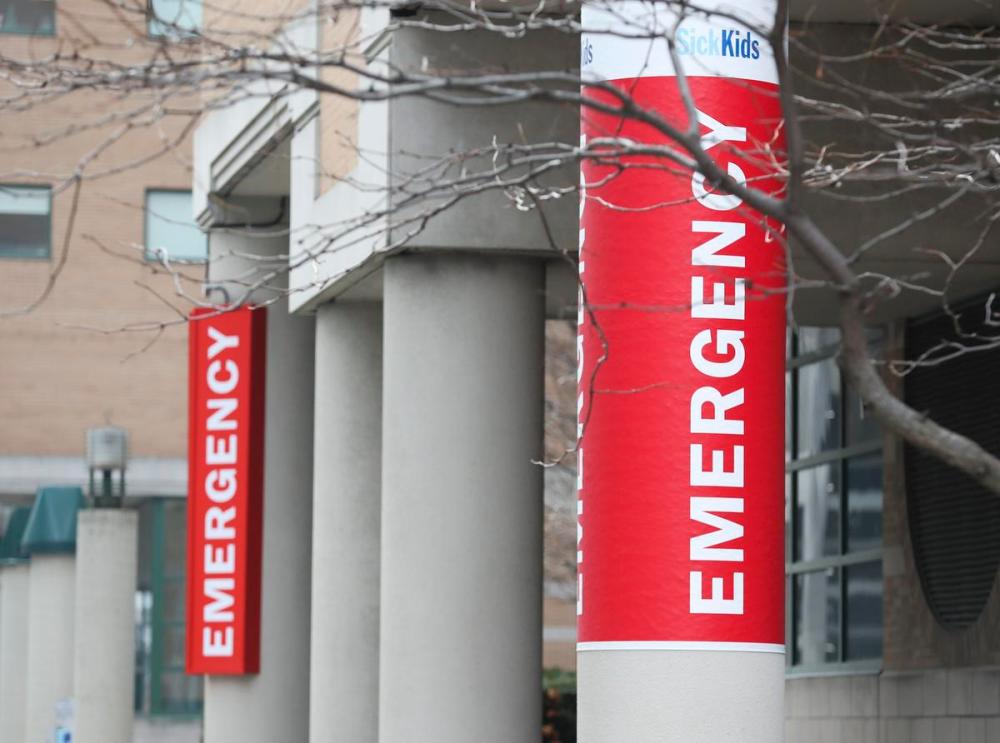Does my child need to go to hospital? What to watch for if your child gets COVID-19
Advertisement
Read this article for free:
or
Already have an account? Log in here »
To continue reading, please subscribe:
Monthly Digital Subscription
$19 $0 for the first 4 weeks*
- Enjoy unlimited reading on winnipegfreepress.com
- Read the E-Edition, our digital replica newspaper
- Access News Break, our award-winning app
- Play interactive puzzles
*No charge for 4 weeks then billed as $19 every four weeks (new subscribers and qualified returning subscribers only). Cancel anytime.
Read unlimited articles for free today:
or
Already have an account? Log in here »
Hey there, time traveller!
This article was published 25/04/2021 (1298 days ago), so information in it may no longer be current.
A 13-year-old Brampton girl’s death from COVID-19 is both an “exceedingly uncommon” outcome and a reminder to Ontario parents to know the risks and warning signs if their child gets sick, experts say.
Emily Victoria Viegas, 13, is one of the youngest Canadians to die in the pandemic. Dr. Andrew Healey, corporate chief of emergency medicine at William Osler Health System said the girl arrived in the emergency department at Brampton Civic Hospital on Thursday and died later the same day.
Starting with the basics, here’s what parents need to know about the risks the virus poses to children.

Does COVID-19 affect young people differently?
Yes, generally speaking, COVID-19 results in milder disease in children than in adults, said Dr. Jeremy Friedman, associate pediatrician-in-chief at Sick Kids in Toronto.
“In the vast majority of children, COVID-19 is still a mild illness,” Friedman said.
How should I treat a mildly sick child at home?
Many children will have no symptoms at all, and those who do often experience mild symptoms that resemble other common viral illnesses, Friedman said.
His advice for treating a mild case of COVID-19 is similar to what he would tell parents who have a child with any other viral illness. The main thing is that if your child has a fever, “you want to give them something to bring the fever down and make sure they’re taking in enough fluids,” he said.
For body aches, another common symptom, Dr. Anna Banerji, an associate professor of pediatrics at the University of Toronto, suggested Ibuprofen, also emphasizing that maintaining hydration is important.
Healey emphasized it’s important to try and limit the spread of the virus at home. For this, he recommended frequent handwashing, mask-wearing and trying to separate living spaces.
What are the warning signs my child may need urgent medical attention?
One clear sign your child may need urgent medical help is if they’re having difficulty breathing, Friedman said. Another concerning symptom is if a child is refusing to eat or drink and appears at risk for dehydration, he said. (Signs of dehydration include infrequent urination and dryness in the mouth and eyes.)
Banerji added lethargy or chest pains as signs your child may need to be assessed by a doctor; Healey mentioned a persistent fever or an unusual rash.
The main thing is to not wait too long, and to know help is there if you need it.
“When to seek health care is perhaps one of the hardest decisions anyone makes,” Healey said. “Even as a physician, when I have been ill, it’s hard to know when you make that decision to venture out the front door and seek help.”
Still, he emphasized, hospitals can continue to take patients, despite ongoing capacity concerns.
“Are our hospitals dangerously close to not being able to provide care for every individual that presents? Yes … But, at the moment, I believe that our hospitals will see anyone who comes through their front doors.”
Friedman added: “Coming to our hospital — whether it’s the emergency department, or to one of the clinics — we are absolutely confident that that is a safe thing for a family to do.”
Sick Kids also has a visitors policy that allows one adult to be with a child at all times, he said, something that may not be the case at every hospital.
How worried should I be about the risk to my child?
Friedman said the risks to children are much the same now as they were a year ago. The death of a child is an “absolute tragedy,” he said, “but it is a really, really, unusual occurrence.” (Friedman cautioned he’s not aware of the specific details of Viegas’s case.)
Still, the city is seeing more children testing positive, he said, adding that it’s not clear if newer variants of concern, such as the variant B.1.1.7 that’s now dominant in Ontario, are playing a role. It’s very difficult to tease out whether the increase in younger cases “is a reflection of the fact that there’s such high levels of COVID in the community or whether there’s any relationship to the new variants,” Friedman said.
Regardless, deaths from COVID-19 in younger patients, particularly children, are “exceedingly uncommon,” Healey said Monday, cautioning that if the number of cases gets to be very large, “we are going to see events in all age groups.”
What can parents do to stay safe when leaving home with their child?
When leaving home, Friedman said he wants parents to “meticulous with social distancing, with the wearing of masks, with the washing of hands.”
“Everybody is kind of tired of hearing that message, but the reality is it’s going to take quite some time to vaccinate the entire community and while we’re doing that the best form of treatment is prevention.”
Irelyne Lavery is a Toronto-based staff reporter for the Star. Reach her via email: ilavery@thestar.ca






